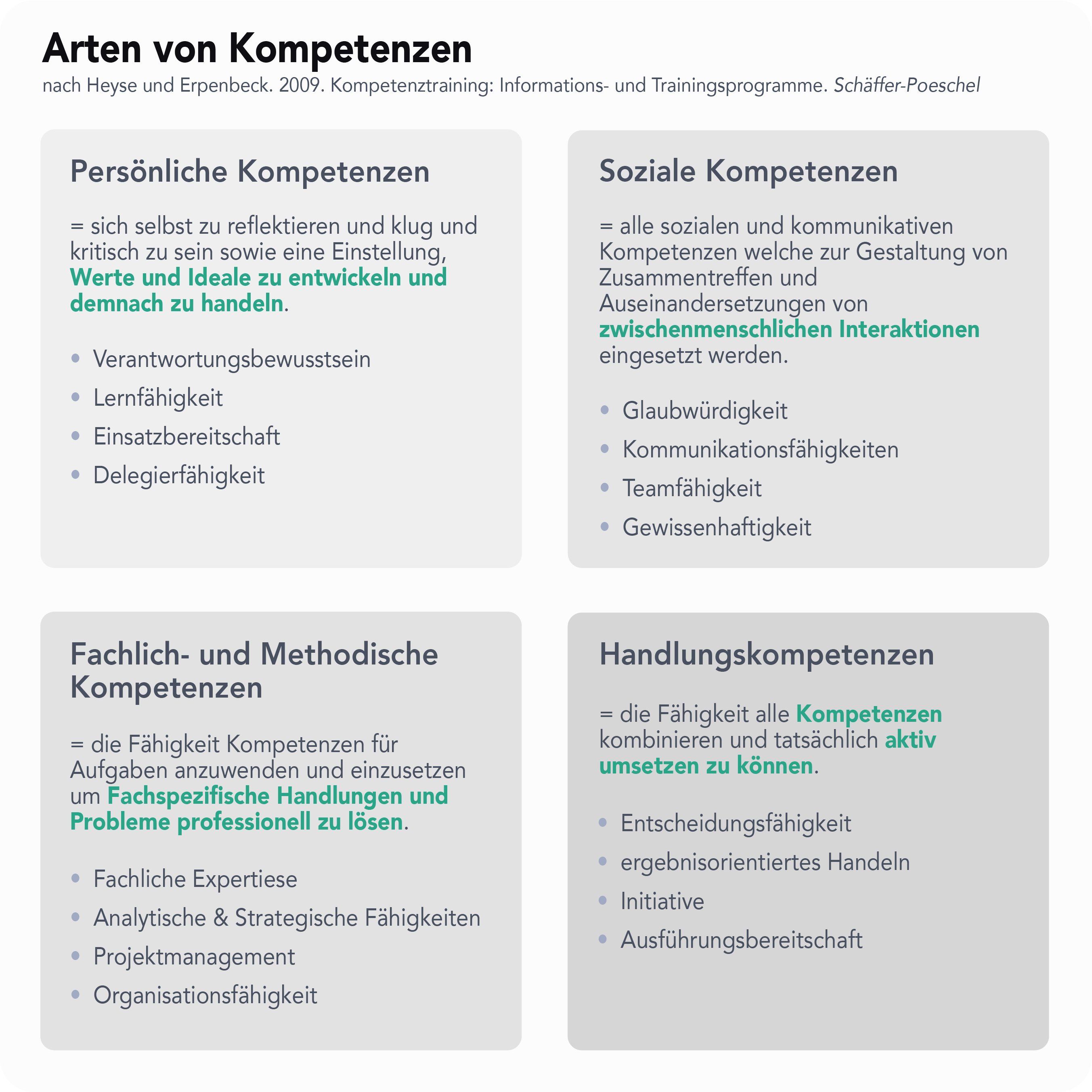Competences are learned skills, knowledge and behaviours that are used in a professional context. They vary according to training, experience, personal interests and areas of responsibility of a person. However, different competencies can also be found in different industries and organisational sizes. If employees are properly deployed according to their competencies, they can lead to greater efficiency and success of the organisation.
Therefore, it is important for leaders, managers (especially HR managers) and team leaders to know which competencies exist in the organisation and how they can be managed within the framework of competence management.
What are competencies?
Competences are often equated with the word qualifications or also seen as an authorisation for employees to perform certain actions. The latter can be described as a bundle of interests, abilities, knowledge, skills and behaviours that a person has actively or also passively learned in the course of his or her life and combines and applies in the course of action requirements. Competencies are often defined for job advertisements or for project teams by HR managers or project leaders, but they are rarely used beyond that in practice. In doing so, they make an incredibly large contribution to the company’s success, as a company cannot function without appropriately competent employees.
What are the types of competencies?
Competences can be divided into four different groups of competencies:

How can you apply the knowledge you have just learned?
If organisations are aware of the qualifications of their employees and the knowledge is handled properly, this can bring many advantages for future success. But to achieve this, competencies need to be managed. This can be solved through analogue management systems via Excel spreadsheets to digital competence management software tools. Digital software solutions are recommended due to digitalisation and the amounts of data that can be collected about employees. Here you can find an article on professional skills management systems vs. Excel for effective skills management.
Management requires a lot of discipline and is where most companies fail. Skills need to be constantly updated and managed as employees seek personal development or are extrinsically motivated by the company or the fast-moving developments in some fields to learn new skills. When managed consistently, competency management solutions are useful tools for staff development, talent management and succession planning through integrated analytical tools.
